Key Takeaways
Starting an Airbnb business in 2026 means tapping into a market with strong travel demand and evolving guest needs.
This guide breaks down the setup process, legal essentials, pricing, automation, and guest experience.
Practical tips and proven checklists help you avoid common beginner mistakes and build a rental business that stands out.
Starting an Airbnb business in 2026 looks more promising than ever... but also more competitive. With global travel rebounding, mid-term stays on the rise, and flexible work becoming the norm, demand for short-term rentals continues to grow. Yet for new hosts, getting started takes more than listing a spare room and waiting for bookings to roll in.
From navigating new regulations to setting up automation tools and pricing strategies, the modern host needs a plan that balances convenience, compliance, and profit. Successful hosts in 2026 are running small, efficient hospitality businesses that scale through smart systems and guest-focused design.
In this guide, we’ll walk through eight steps to starting an Airbnb business in 2026, all the way from choosing your property and setting up operations to managing taxes, automation, and growth. Whether you’re preparing your first listing or laying the groundwork for a multi-property portfolio, this roadmap will help you launch with clarity and confidence.
Step 1: Define Your Airbnb Business Goals
Before you even purchase your property, it's time to get clear on your goals.
Do you want extra income on the side or plan to grow into a full-time operation? Do you want short-term lets or would long term rentals make more sense? Are you running this as a hands-off side hustle or do you have the time to dedicate more to running your business in-person?
Your answer shapes every decision ahead, from how much time you’ll dedicate to the types of tools that keep your days manageable. Clear goals help cut distractions and keep your focus on what actually grows revenue.
Decide on your hosting model
Start with the kind of space you want to offer.
Renting a spare room keeps things low-key and gives you a way to learn the process with less risk. Running an entire property (whether a city apartment or rural cottage) takes more effort but brings in higher earnings.
City stays usually attract business travelers and digital nomads who expect fast Wi-Fi and easy check-in. Rural getaways pull in families and groups who want privacy, outdoor space, and pet-friendly features.
Consider your own schedule and capacity. Full-time hosts need strong systems, while occasional hosts can stick with more straightforward routines.
Understand your ideal guest
Nail down your guest profile early.
If you want remote workers, offer a workspace and strong internet. Families look for kitchens ready for real cooking, high chairs, cribs, and laundry. Business travelers need quick check-in, blackout curtains, and zero fuss. Tourists often want local recommendations, guides, and flexible check-out.
The audience you choose shapes your design choices, amenities, and nightly rates. Aligning your setup with your guests' needs is the first step in how to start an Airbnb business that actually stands out in 2026.
Create 5-star guest experiences
Give your guests unforgettable experiences
With Uplisting, you can send the right messages at the right time on all booking sites. Read and respond to guest messages in a single, unified inbox — whether you’re at the office or on the go.
Step 2: Research Local Rules and Requirements
Before putting up a listing, take a close look at the legal landscape in your area.
City and county governments set unique rules for hosting, sometimes even street by street. Some towns require both a short-term rental permit and a business license, while others might only allow primary residences, not investment properties or second homes. Zoning can limit STRs to certain neighborhoods or cap the number of guests, so knowing the boundaries keeps you from running into headaches down the line.
Missing a permit or breaking a zoning rule means risking hefty fines or a forced shutdown. Start by visiting your local government’s STR policy website, then call the planning or permitting office if anything is unclear. Get the details on inspections, guest limits, and renewal deadlines. Don’t overlook Homeowners’ Association rules, since one board vote can block short-term rentals even if the city green-lighted your application.
Tax requirements come next.
Local governments expect you to report all short-term rental income and collect lodging or occupancy taxes. The Internal Revenue Service expects a Form 1099-K for any STR income over $600, so accurate records are your best friend. Many booking platforms handle sales and occupancy tax collection automatically, but gaps pop up—especially with local taxes.
Always double-check if you need to register, file, or pay taxes directly. On Airbnb, you can enable tax collection in the listing dashboard; full instructions are available here. Missing a tax deadline or skipping a registration leads to fines and can cost your permit. Starting with compliance means your Airbnb business runs smoothly and stays open for bookings.
Step 3: Prepare Your Property
Turning an empty space into a guest-ready rental sets you apart from neighbors who just post a few photos and hope for the best.
When you want to know how to start an Airbnb business that earns five-star reviews, every detail counts, from the layout in the living room to the mugs in the kitchen.
Design with guests in mind
Put yourself in your guests’ shoes.
Arrange furniture so people can move easily, drop bags, and relax without feeling cramped. Choose supportive mattresses and add blackout curtains for comfort. Walls don’t have to stay bare. Add artwork, throw pillows, or a standout light fixture for style and better listing photos.
Details like bedside charging stations or a printed welcome note with local recommendations often turn an average stay into one guests rave about. Reviews tend to mention the little touches, not the square footage.
Stock essentials
Guests expect comfort and convenience when they walk through the door. Keep a full set of fresh sheets, towels, and extra blankets for each bed. Place a vacuum, mop, and wipes in an accessible spot so guests can handle minor messes and you can handle turnover without scrambling.
Stock the kitchen with basics: pans, sharp knives, a coffee maker, dishes for every guest, plus a couple spares. Small appliances like a toaster and kettle help guests settle in. For bonus points, leave a local guidebook or a printed QR code that links to a digital house manual so that guests find Wi-Fi passwords, neighborhood favorites, and emergency contacts in seconds.
Safety checks
Safety should be visible and obvious. Install smoke and carbon monoxide detectors where required and test them regularly. Place a first aid kit where everyone can spot it. Use sturdy locks on doors and windows, and consider smart locks or keypads for keyless entry and reliable access. Light every walkway and stairwell well.
Add a list of safety features to your house manual, letting guests know their well-being comes first. Guests notice when a property feels secure, and trust often starts at the front door.
Save yourself from your inbox
Automate with Uplisting
Automated guest messages keep your guest informed from booking through to check-out. They’re designed to answer questions before they arise, saving you time whilst keeping your guests happy.
Step 4: Create a Standout Airbnb Listing
A standout listing puts your property in front of more travelers and fills your calendar. The strongest listings answer guest questions, spotlight real benefits, and show exactly why your rental should be their pick.
If you’re focused on how to start an Airbnb business, getting your listing right sets you up for success from day one.
Write a clear, engaging description
When you write your listing, spell out what guests get straightaway.
Short paragraphs, headers, and the occasional bullet help guests scan for what matters to them. Call out features like a washer and dryer, blackout curtains, or a fenced yard for pets. List every amenity you offer, and always double-check for accuracy because guests appreciate honesty.
Descriptions work best as a welcome mat, not a checklist. Show how your place makes travel easier: “Wake up to mountain views and stream movies on a 65-inch TV at night.” Mention perks like early check-in or self-check-in at the top. Direct language draws more bookings than hype.
Use professional photos
Photos land the first impression. Guests scroll fast so images need to stop them in their tracks.
Use natural light and shoot during the day. Open every curtain. Tidy every room, hide cords, fluff pillows, and remove personal items before taking pictures. Take wide shots for layout and close-ups for detail, a coffee bar or rain shower, for example. Include every room, exterior, parking, and shared spaces.
Hiring a pro photographer pays off when possible. If not, a recent smartphone and tripod work for steady shots. Edit lightly for brightness and color, but skip filters that distort reality. Organize photos in the order guests experience your space, from entry to check-out, for a seamless walkthrough.
Highlight what makes your property unique
Travelers are looking for memorable stays when they choose Airbnb, not just a place to crash.
Shine a light on any standout features, like a desk with a view for remote work, a private backyard for pets, or walking access to the best coffee in town. Mention family gear like cribs and high chairs, or a workspace with an ergonomic chair. Spell out proximity to trailheads, event venues, or public transport.
Welcome baskets, local guides, or printed maps add extra appeal. List distances to restaurants and top attractions, rather than settling for “great location.” Show guests exactly why your property is the obvious choice, not just another dot on the map.

Step 5: Price Your Listing Strategically
Getting your pricing right sets the pace for both bookings and income. Guesswork or copying a neighbor’s rate leaves money on the table or scares off guests. Hosts who want to know how to start an Airbnb business that pays off use data-driven tools and real-world tactics to stay ahead.
Use dynamic pricing tools
Smart hosts turn to dynamic pricing software that reacts to real-time demand, local competition, and how full calendars are looking. When bookings slow, prices drop to pull in more guests; when a big weekend or event pops up, rates climb to capture extra income. Setting your own minimum and maximum values keeps your business goals clear, while letting automation do the daily work. This approach helps avoid headaches like having weekends sell out first or missing obvious price increases during event weeks.
Manual rate-setting often means being the first to fill up... and the first to regret it! Stale rates can also leave listings buried in search results, invisible when demand picks up. Take time every week to spot calendar gaps, compare your pace against nearby properties, and make targeted tweaks. The goal is to find the sweet spot where steady bookings meet healthy margins.
Consider seasonal and event-based demand
Timing is everything. City calendars, school schedules, and local festivals bring waves of travelers who are willing to pay more. Set higher base rates for school holidays, summer travel, and any weekends with big sports games, concerts, or conventions. Micro-events like parades or food festivals can fill calendars for just a night or two, but those spikes add up over the year.
Staying on top of local event listings and school calendars, then updating your pricing a few months out, gives you an edge over slower hosts. Early planners often pay premium rates, and being first with a fair price locks in bookings ahead of the crowd. Strategic pricing, built on real data and a little local knowledge, turns a regular listing into a standout performer.
Enjoy the confidence & focus you need to scale your vacation rental business
Book more while doing less
With a reliable VRM solution you can trust, Uplisting can help you grow your business without wasting time on double bookings, unhappy guests, upset clients and worrying what could go wrong next.
Step 6: Automate Operations Early
Manual management drags you down before your second listing even goes live. Automation is the only way to keep your business moving and your calendar open for growth.
Property management systems (PMS) work for hosts handling just one or two rentals, not only large portfolios. You can sync calendars across every booking platform in real time, which means double bookings fall off your list of worries. Schedule guest messages for booking confirmations, check-in instructions, and review requests, so you never have to write the same note again.
Smart locks replace the old key-under-the-mat routine. Guests enter with a unique code that updates for each stay, so late-night lockouts and frantic key handoffs disappear. Cleaning also shifts from chaos to control as the automated entry allows you to assign turnovers automatically and send notifications straight to your cleaner’s phone. Every room stays guest-ready, and you avoid last-minute scrambles.
Message templates and simple rules let you respond to guests quickly and keep your communication friendly, even when you’re knee-deep in laundry or juggling back-to-back check-ins. Set up auto-replies for common questions, and flag anything unusual for a personal touch. Schedule review requests to keep your listing climbing in search, and use saved replies to save hours each week. For anyone serious about how to start an Airbnb business, early automation is the difference between keeping up and burning out.
Step 7: Deliver a Great Guest Experience
Each booking is your opportunity to earn five-star reviews—not just fill a calendar. Hosts who focus on guest experience rise above the competition and build a steady flow of repeat bookings. Getting details right sets your Airbnb business apart from listings that fade into the background.
Clear communication from booking to checkout
Guests expect fast, friendly, and accurate updates at every step. Automated messages confirm bookings right away, send a warm welcome, and deliver check-in info with no delay. Reminders about key codes, Wi-Fi, and house rules reach inboxes before questions even pop up. Guests appreciate clear directions, parking details, and up-to-date contact info for a smooth arrival, not a panicked phone call at midnight.
Use an approachable, proactive tone. When guests ask for info you've already shared, send it again. Automated checkout reminders keep departures smooth and help cleaning run on time. A thank you message after check-out encourages positive reviews before guests even leave the driveway.
Build trust with quick problem-solving
Problems happen. A towel goes missing, a lock sticks, or the power flickers out on a busy weekend. When issues crop up, act fast and show you care. Offer a real apology, pitch in with practical fixes, and if a refund or small gesture is needed, offer it before guests start asking. Fast, honest communication builds loyalty.
Keep clear emergency plans ready and share them in your house manual and digital guides. Lay out what to do for alarms, plumbing, or locked doors, so guests feel looked after. Handling headaches quickly turns frustration into trust, which translates into stronger ratings and more bookings. Hosts focused on how to start an Airbnb business that grows know reliability leads to results.
Encourage thoughtful reviews
Guest experience continues even after the last key drops off. Send a short, friendly review request and mention a detail from their stay if possible. Positive reviews move listings up in search and build trust with new travelers. Consistent, thoughtful feedback reassures future guests your property matches the promises and photos.
Reply to reviews no matter what they say with a brief, professional note. Thank guests for input and let future travelers see you value every stay. Over time, reviews become your best marketing tool, shaping both visibility and reputation in a business built on trust.
You’re in great company
Sign up
Some of the largest short-term rental operators (with 250+ properties) rely on Uplisting's software to scale their businesses.
Step 8: Track Performance and Scale
After booking your first guests, the real progress happens in the numbers. Data shows where your listing stands, what guests value, and where your energy pays off most.
Review key metrics regularly
Occupancy tells you how often your property hosts guests. Average daily rate (ADR) reveals the typical price guests pay for a night. Revenue per available night (RevPAR) combines both, showing daily earnings for every night your property sits ready.
Notice a dip in occupancy or ADR? Adjust pricing, refresh your listing, or rethink your guest target. Monthly check-ins on these numbers keep your business nimble and weekly reviews put you in the driver’s seat for even faster growth.
Expand strategically
Growth works best with a plan. Add a second or third listing once your first runs smoothly. Bring in a co-host to handle guest communication or cleaning while you focus on new opportunities.
Some owners team up with investors or property partners, managing operations in exchange for a split of the earnings. Choose growth options that let you keep quality high and headaches low. Automation for messaging, cleaning schedules, and calendar syncs keeps daily tasks under control as your portfolio grows.
Adding listings: Move into new neighborhoods or try different property types after building reliable processes for your original space.
Hiring co-hosts: Assign guest support and turnover tasks so you can concentrate on scaling or marketing.
Partnering with owners: Manage properties for others who want hassle-free income, growing your reach without buying more real estate.
Build repeat stays and loyalty
Direct bookings and loyal guests make your business run smoother and more profitably.
Launch a simple website where guests can book directly, cutting out third-party fees. Request guest emails (with permission), follow up after checkout, and offer a discount or perk for returning. A direct channel builds loyalty and protects you from sudden platform changes or search algorithm surprises. Treat every guest as a future regular and you'll soon find that repeat stays fill up calendars year after year.
Learning how to start an Airbnb business means watching numbers closely, making smart changes, and growing step by step. Tracking progress and fine-tuning operations help your rental stand out in a busy market.
Building a Future-Proof Airbnb Business with Uplisting
Success in short-term rentals starts with control.
When you need to manage pricing, calendars, and guest messages, a single dashboard brings every moving part into focus. That way, your attention stays on guest experience, not on troubleshooting tech headaches.
With record numbers of travelers booking short stays in 2026, starting an Airbnb business has never looked more promising, or more competitive. As guest expectations rise and local regulations tighten, new hosts need more than just a great property. Success comes from setting clear goals, following legal requirements, preparing your space with purpose, and building unforgettable guest experiences.
Ready to take the next step? Sign up for Uplisting and build a business that’s efficient, scalable, and guest-ready from day one.
So automatic, you won’t know what to do with yourself
Put my rentals on autopilot
It’s simple to automate repetitive tasks with Uplisting's short-term rental software. You’ll save hours every week and eliminate human error. Go ahead — take some time off.
FAQs About Starting an Airbnb Business in 2026
How much money do I need to start an Airbnb?
Costs for launching an Airbnb business swing widely depending on your market, property size, and how guest-ready you want to be when bookings start rolling in. Expect to cover security deposits, minor renovations, furniture, linens, kitchen setup, safety equipment, cleaning supplies, professional photography, and utility bills. Plan for a cash cushion to cover repairs and slow booking periods. Many hosts put $5,000 to $20,000 into a starter property, but prime locations or larger homes often demand bigger budgets if you want to attract travelers year-round.
Is an LLC necessary for my new Airbnb?
Setting up a Limited Liability Company (LLC) creates a clear line between personal and business finances. LLC formation brings extra paperwork and costs a few hundred dollars to start, with yearly fees to maintain. Many hosts begin as sole proprietors and switch to an LLC when they grow or want more protection. An accountant or attorney can help you decide what structure makes sense for your goals.
What are mid-term stays and why consider them?
Mid-term stays (bookings from 30 days to a few months) bring in traveling professionals, remote workers, and families between homes. These reservations fill calendar gaps during slower tourist seasons and offer steady income with less frequent turnover. If steady revenue and fewer turnovers sound appealing while figuring out how to start an Airbnb business that works year-round, mid-term guests can keep the calendar full and reduce management stress.
Do I need a business licence to host?
Most city and county governments require a business license or short-term rental permit before you list a property. Rules often vary by neighborhood, property type, and guest count, so check local government websites or call the office for specific requirements. Missing paperwork can lead to fines or lost listing privileges, so get licenses sorted before welcoming your first guest.


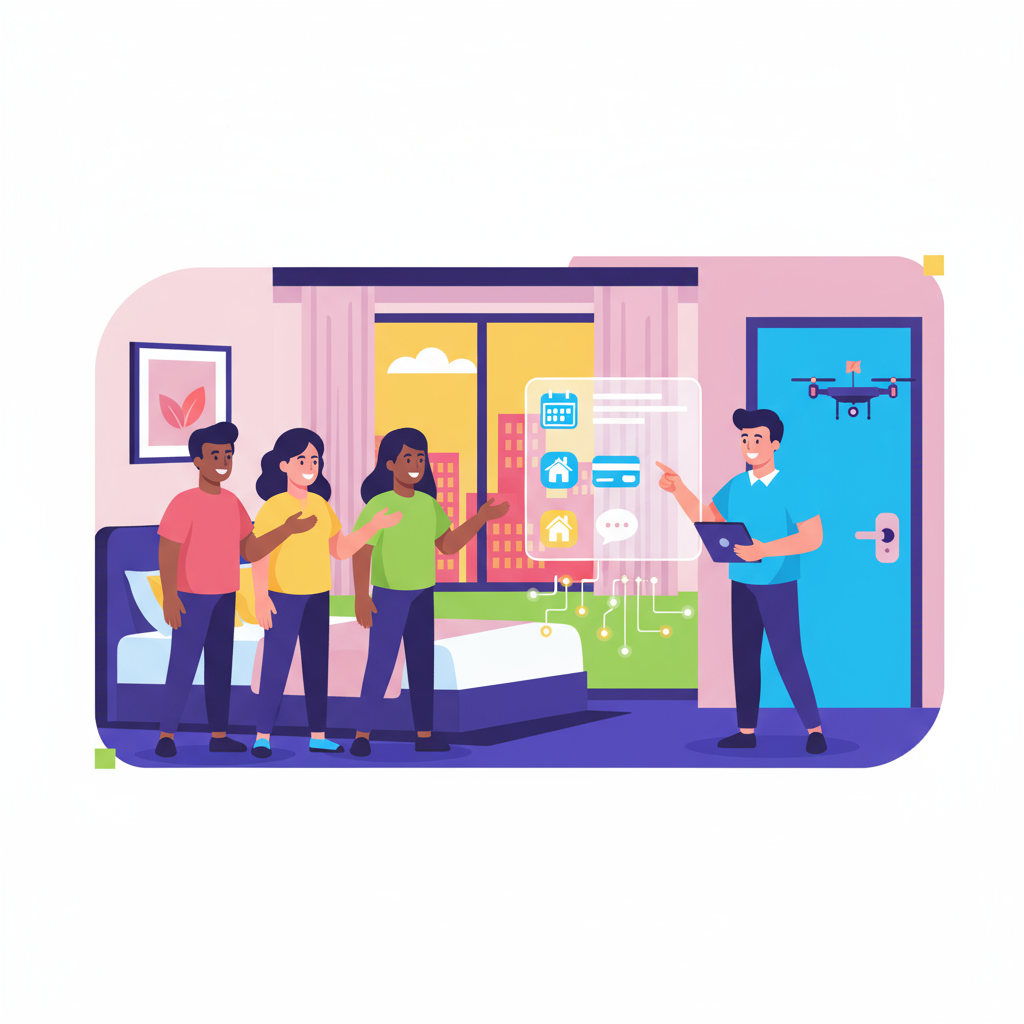



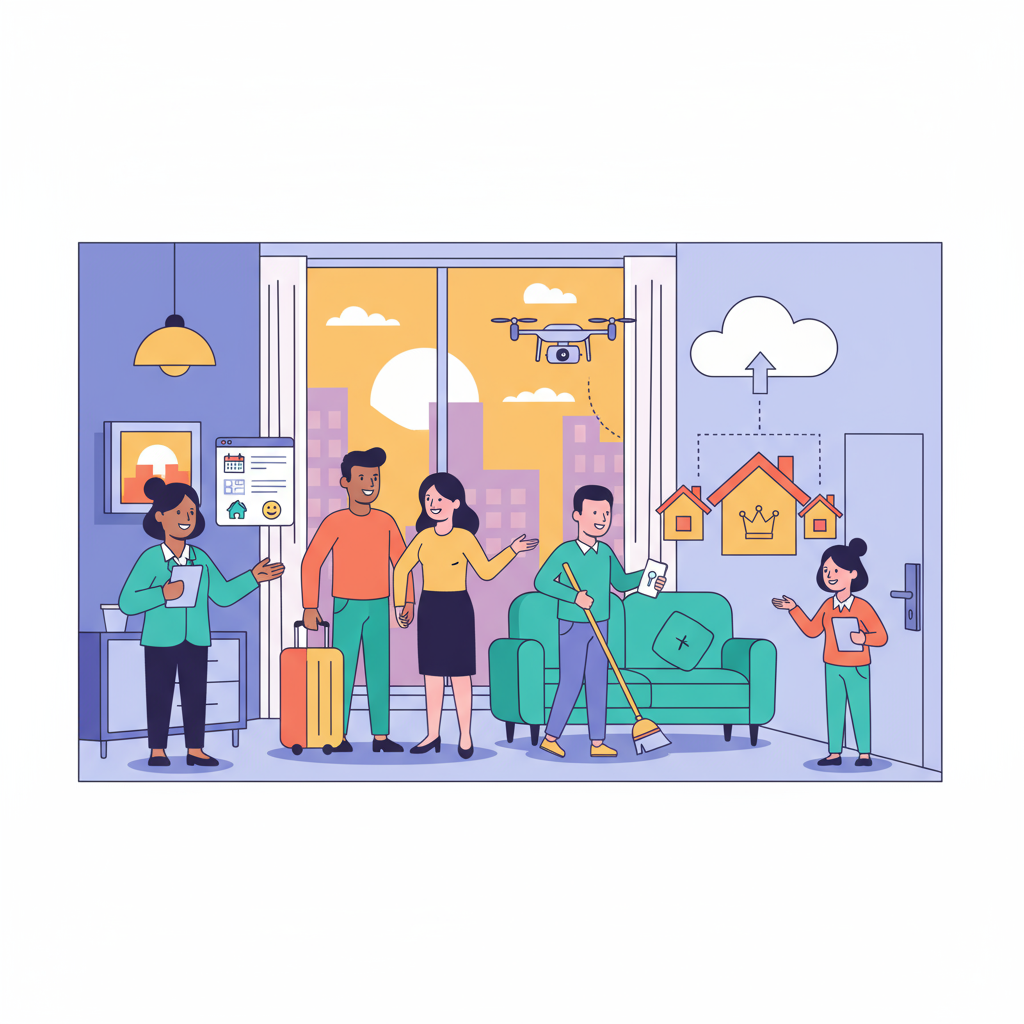



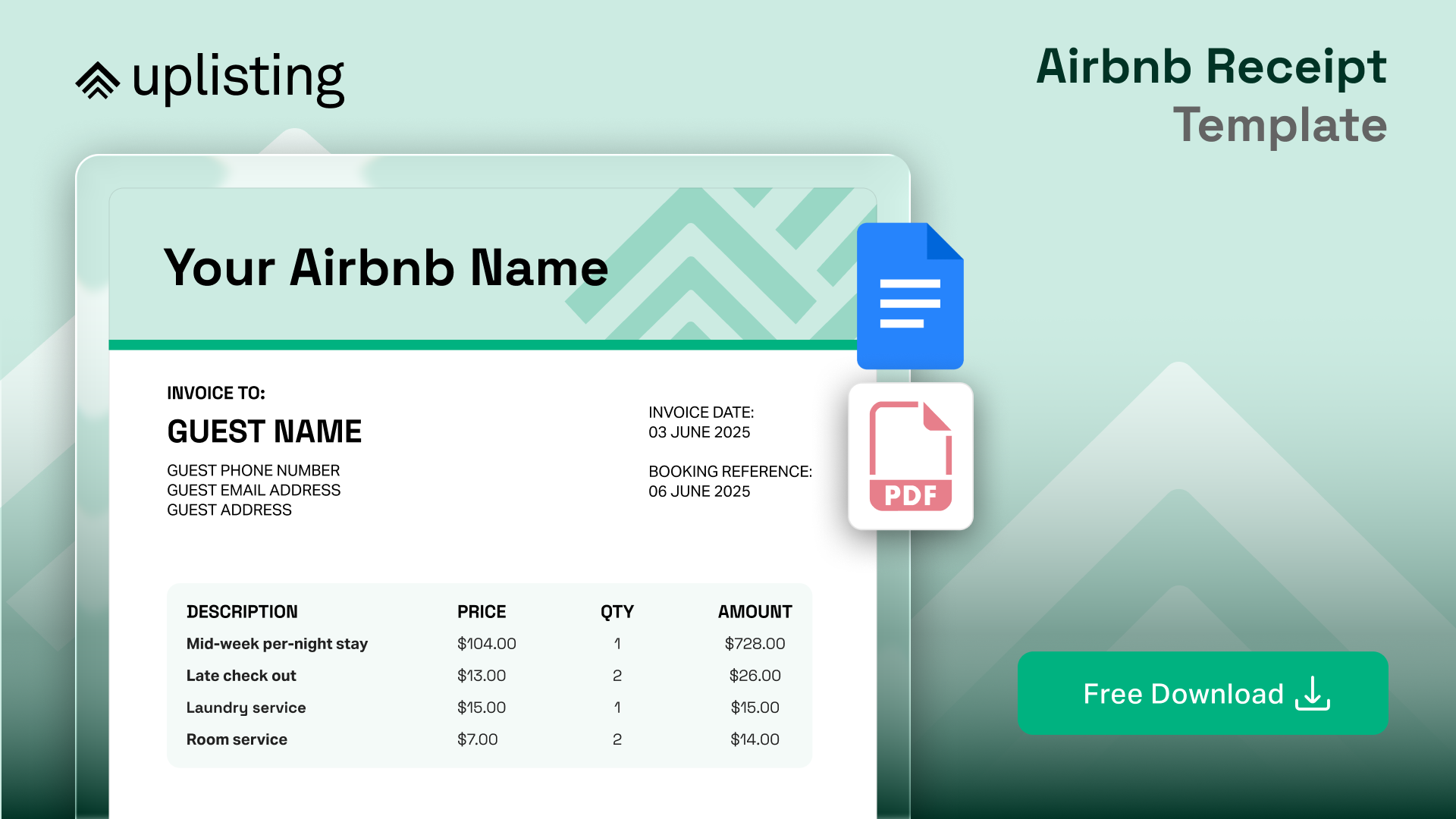

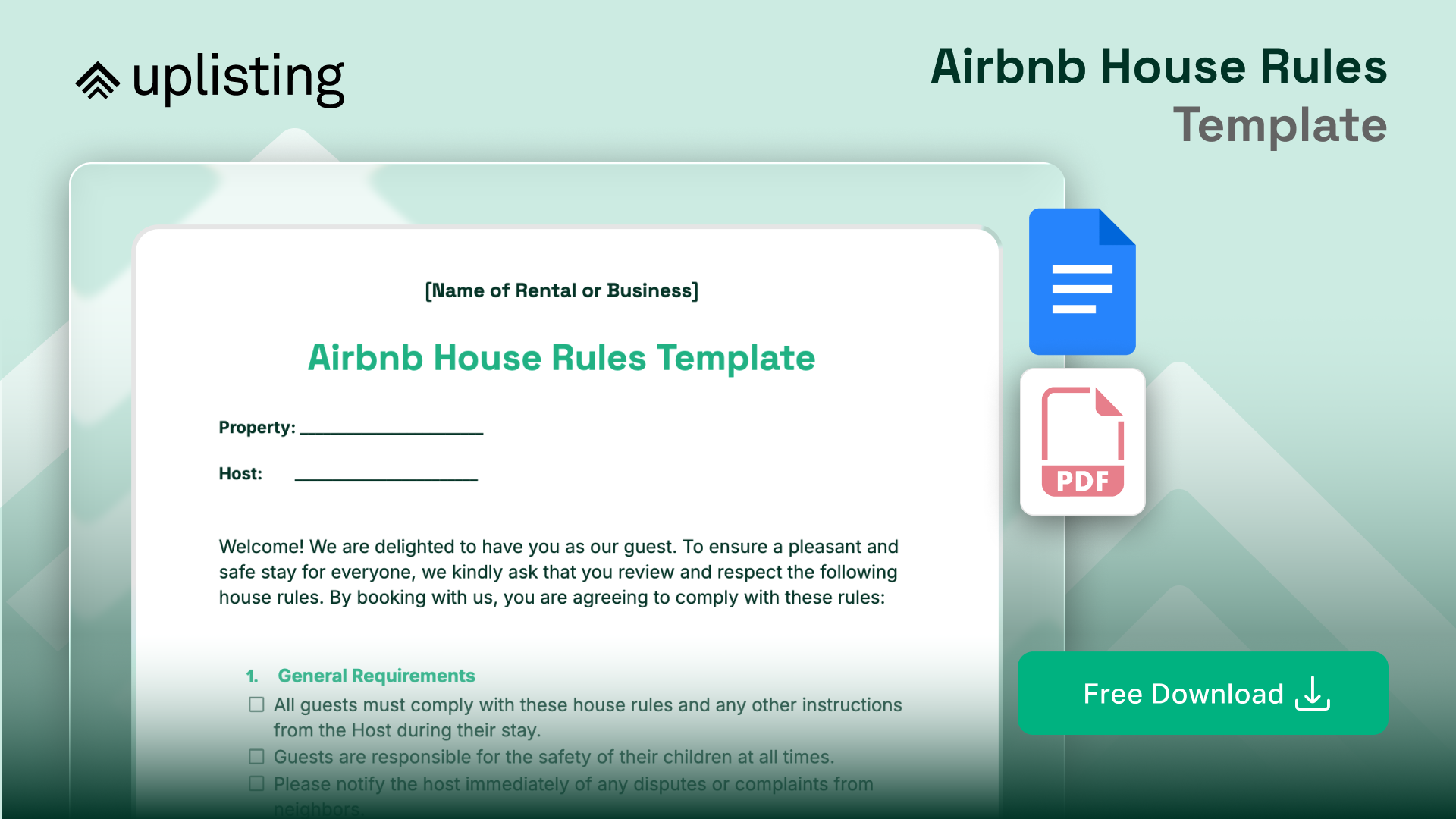

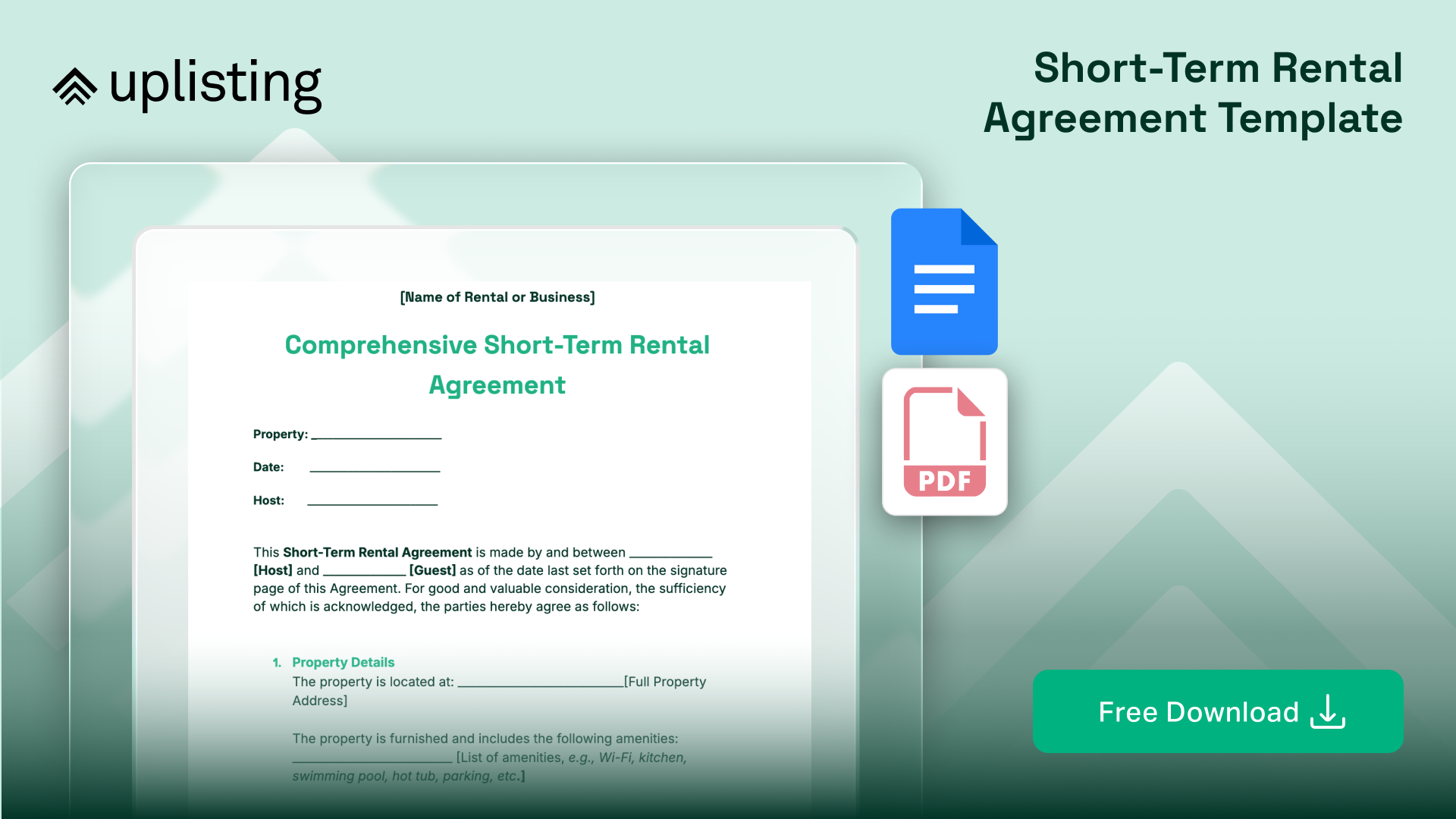

.png)

